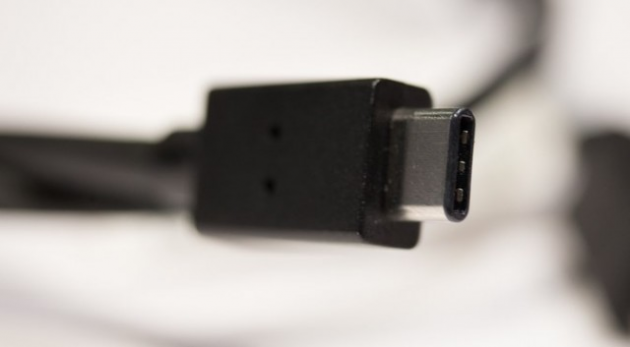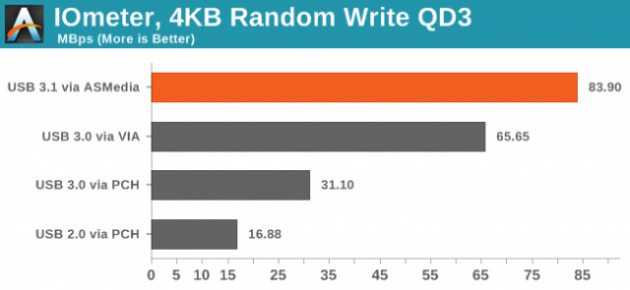USB 3.1 Type-C achieving large transfer performance gains over USB 3.0
The USB 3.1 Type-C was the topic of a lot discussion at the recent CES this January. Whilst the idea of faster data transfers has been of interest for a while, the mini version of the USB 3.1 which was approved by the USB 3.0 Promotor Group (pdf file) went from prototype, into production and then performance testing. And the results are in.
A Little Bit About USB 3.1 Type-C
The benefits of this new connector is that it is even smaller than the USB 2.0 Micro-B, the USB connector will fit into the port in either orientation unlike USB 2.0 and USB 3.0 ports which must be inserted one way around (this matches the feature of the newer Apple connections in Macbook Pro and Macbook Air computers), it supports scalable power charging options, and 10Mbps theoretical transfer speeds.
Asmedia and MSI USB 3.1 Testing
Benchmarking was recently performed by MSI and Asmedia to see how USB 3.1 performs with their own technology compared to VIA's third party solution, USB 3.0, and Intel's USB 2.0 comparison.
As the performance chart above shows, courtesy of Anandtech, the news is good. Not only is the USB 3.1 connection pleasingly reversible, but it also offers significant speed improvements over the previous iteration, USB 3.0.
Motherboards With USB 3.1 Port Connections Later in 2015
Third party vendors are likely to start shipping motherboards sporting the USB 3.1 port later in the 2015. Likely motherboards will include both USB 3.1 and USB 3.0 as almost everyone will have USB 3.0 type connection for several years to come.
Performance for USB 3.1 largely depends on the controller used. In testing, the Asmedia USB 3.1 controller completed test data transfer in three quarters of the time it took an Intel 3.0 controller.
RAID Connections Delivered Stunning Tests Results
In testing, Intel has also shown that its USB 3.1 controller could achieve 800 MB/s when connected via RAID. Anandtech initial tests demonstrated a transfer speed of 650-700 MB/s. Generally Intel's controllers are superior to third party ones, but the third party hardware comes with their own controllers until Intel release their own controller.
Intel Sometimes Behind The Curve On Chipset Support For New Connector Types
In the case of USB 3.0 it took Intel three years to release chipset support with a direct controller whereas third party vendors had a slower one out much sooner. With that said, it is suspected that Intel held back because they were on the fence about adopting Thunderbolt as a connector of the future. The same kind of issue exists with several Firewire connectors which never received adequate support from hardware vendors and PC makers.


